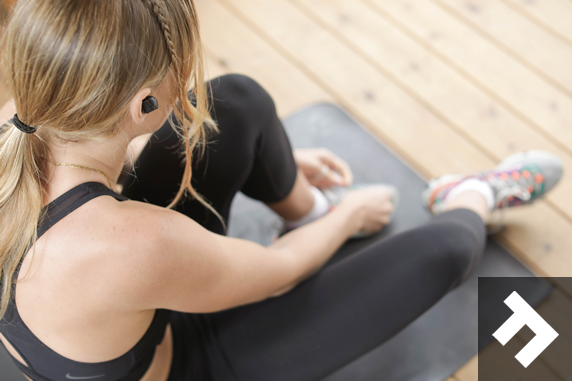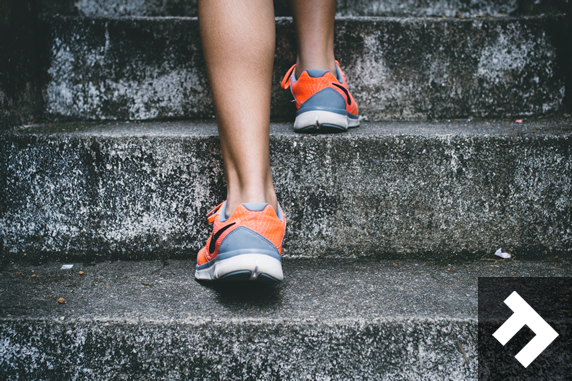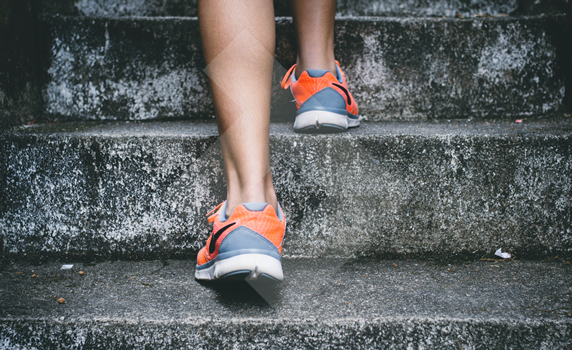Wanting to get back to exercising after an infection that wiped you out? Explore the benefits and drawbacks of doing so, here!
An infection can be caused for a number of reasons, appearing due to a foreign organism present within the body that must be fought.
Whether it’s an infection caught in hospital, or one caught out and about, recovery time can sometimes be longer than you expect. It could wipe you out mentally and physically for a few weeks, especially if it’s serious enough.
Because of this, getting back to exercising might be tricky. However, it might also have some benefits too! In this article, we’ll explain these drawbacks and benefits, and also provide some tips to ease you back into the swing of things. Take a look…
The Benefits of Exercising After an Infection
Starting with the benefits, what are the reasons exercise might be good for you post-infection? Let’s see…
Flushes Out Bacteria
Although it’s not completely founded, some scientists have posited that exercise can help to flush out nasty bacteria from the body. Especially if you have an infection in the respiratory tract, it could be a way to get rid of it. That said, it’s important to note that these are only theories, so shouldn’t be taken as Bible.

Increases Body Temperature
Exercise, of course, increases your body temperature, and some have said that this could also help to fight off infection, killing off bacteria. Again, there are no confirmed studies to show this, so it’s worth taking with a pinch of salt.
The Drawbacks of Exercising After an Infection
Although these benefits might have some truth, it’s important not to push it. So, before heading to the gym or out on a run, it’s important that you know these drawbacks too:
Can Increase the Risk of Dehydration
When you’re recovering from an infection, it’s important that you stay hydrated to improve recovery time. That said, infections can sometimes cause fever, especially if they’re bad, and can lead to unpleasant symptoms like:
- Weakness
- Dehydration
- Muscle aches
- Loss of appetite.
This means that any exercise which causes you to sweat could be detrimental to your healing.
You’ll be Weaker Than Usual
Similarly, your infection might cause you to be weaker than usual, which could make working out tougher than you’re used to. This is especially the case if you’re pushing yourself to run the distance or push those heavy weights. Because of this, it’s really important that you listen to your body to avoid injuries.

You Might be Infectious
Working out sometimes means you’ll head to the gym or out with a group of people. However, the problem with this is you might be infectious, and you don’t want to be spreading these germs!
So, if you’re a gym buff, or love heading out with a running or cycling group, it might be best to stay at home this time. Instead, you could try exercising at home, where you’re unlikely to spread the germs.
5 Tips for Exercising after an Infection
Now that we’ve seen the benefits and drawbacks of working out whilst recovering from an infection, there still might be no stopping you. So, if you’re really wanting to get back to working out, it’s time for some tips so you can do so without harming yourself…
1. Stick to Moderate Exercise
According to various studies, intense and prolonged exercise after an infection – specifically a respiratory infection – can actually cause immunosuppression. This means that the immune system might become compromised.
Instead, the study suggests that “moderate intensity exercise improves immune function and potentially reduces risk and severity of respiratory viral infection”. So, for anyone considering exercising, it’s best to stick to low intensity workouts.
2. Use the “Above the Neck” Rule
Healthline suggests that, if you want to exercise when you’re ill, you should use the “above the neck” rule. This means that if you’re feeling okay generally, but just have a runny nose or earache, you should be okay to do moderate exercise. However, if you’re experiencing symptoms elsewhere in the body, like nausea, diarrhoea, chest symptoms, or body aches, you should pass.
This rule doesn’t apply all the time, especially if you’ve experienced a head injury, like concussion. That said, it’s one to stick by if you’re generally a little under the weather.
3. Don’t Try and Reach Personal Bests
When you’re exercising, you might have goals to reach, but it’s important that you don’t try and meet these goals when you’re unwell. This is because you’ll likely be weak, and might make mistakes that could be harmful to your body.

Instead, when you’re recovering from an infection, exercise should simply be used as a way to improve your mental health and get the endorphins flowing. So, don’t attempt to reach any PB times, or start pushing the heaviest weights.
4. Don’t Exercise Immediately
If you’re recovering from a serious infection, you should really wait until your physical symptoms have gone before getting back to exercising. For starters, you’re not going to feel productive or good exercising in this state. Also, as expressed previously, you might make mistakes that could threaten your health further.
So, be sure to wait until you’re really feeling the symptoms subside before heading to the gym.
5. Seek Your Doctor’s Advice
Ultimately, you really shouldn’t do anything with your body after an illness unless you’ve been given the all-clear by a doctor. So, be sure to seek their expert opinion before you push yourself.
Ready to Get Back to the Gym Post-Infection?
As you can see, there are a few benefits of exercising to recover from an infection. That said there are also plenty of drawbacks too. What’s more, many of the benefits are unproven, so perhaps staying in bed until you’re feeling more yourself is the answer.
For more information about exercising during your infection recovery, head here. Otherwise, be sure to seek the advice of your doctor before pushing yourself.
Please be advised that this article is for general informational purposes only, and should not be used as a substitute for advice from a trained medical professional. Be sure to consult a medical professional or healthcare provider if you’re seeking medical advice, diagnoses, or treatment. I’m not liable for risks or issues associated with using or acting upon the information on this site.
![]()
 Instagram
Instagram Pinterest
Pinterest Facebook
Facebook Twitter
Twitter YouTube
YouTube




 Paul
Paul 



